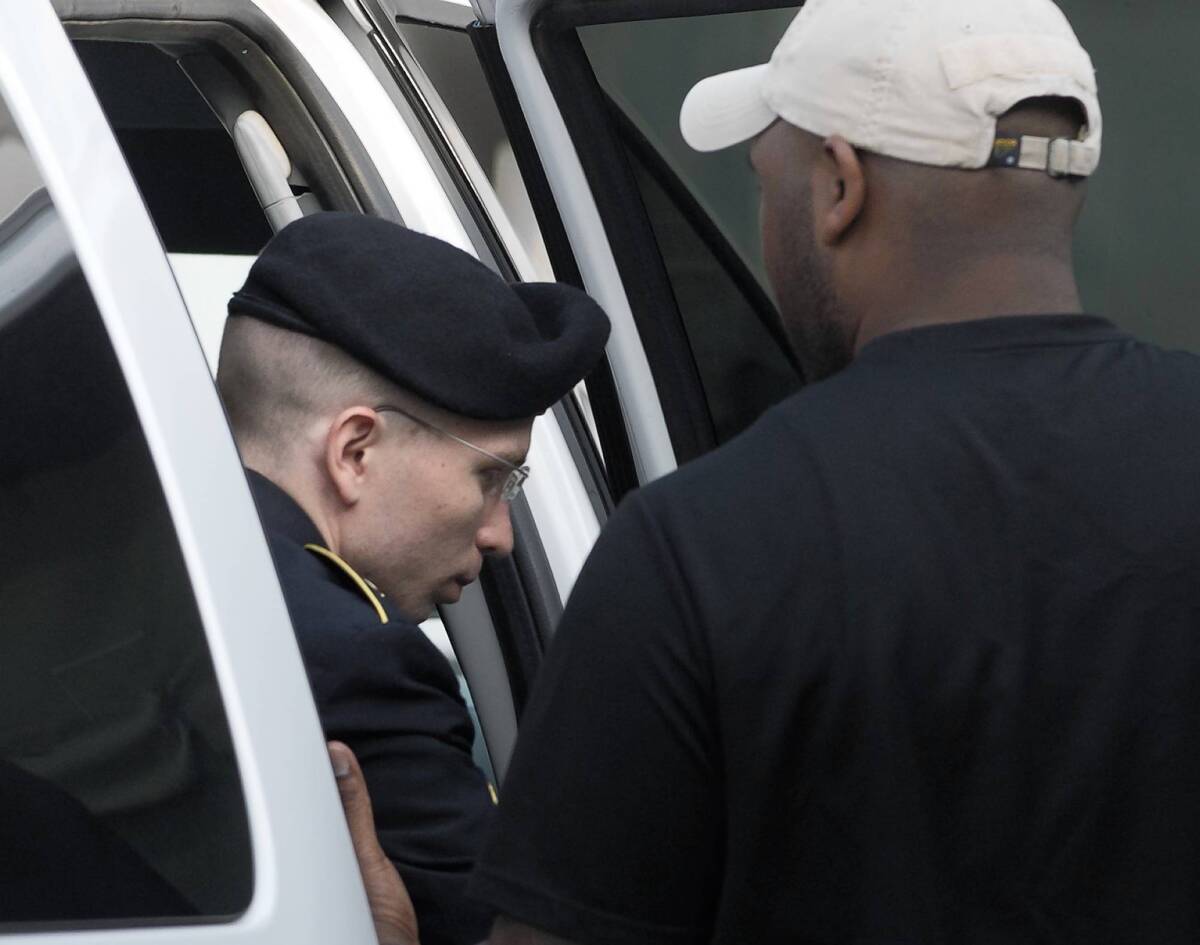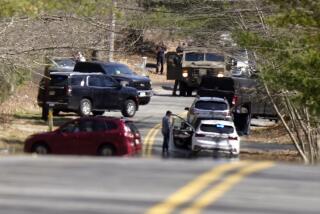Manning’s disclosures imperiled U.S. troops, ex-general says

- Share via
FT. MEADE, Md. — A former top Army officer who oversaw the Pentagon’s secret intelligence gathering testified Wednesday that Pfc. Bradley Manning’s disclosures to WikiLeaks “affected our ability to do our mission” and endangered U.S. ground troops in Iraq and Afghanistan.
Retired Army Brig. Gen. Robert A. Carr, formerly at the Defense Intelligence Agency and now an executive at Northrop Grumman, was the government’s first witness in the sentencing phase of Manning’s court-martial. Military prosecutors hope to win a maximum prison term of 136 years for the 25-year-old soldier.
Manning was convicted Tuesday of violating the Espionage Act but acquitted of the more serious charge: aiding the enemy by making the material available to Al Qaeda and other terrorist groups.
Carr said the U.S. military was stunned to discover that so much material had been given to the anti-secrecy website. The disclosures comprised more than 700,000 documents, including combat strategies, State Department cables and terrorism detainee assessments.
“There was nothing about [the] WikiLeaks [situation] that was normal,” said Carr, who spent much of his 31-year military career directing Army intelligence-gathering operations.
Releasing so much classified material, he said, put countless people at risk. “It’s a nasty world,” Carr said. “In some cases, lives will be harmed.” But Carr did not specify anyone who was harmed by Manning’s disclosures.
Carr said sources of information dried up and “quit talking to us as a result of the releases.”
He said some countries began registering complaints after reading the detainee assessments for terrorism suspects held at the U.S. military prison at Guantanamo Bay, Cuba. At the time, Carr said, “we were trying to move people out of Gitmo,” and the compromised records stalled negotiations with foreign countries.
In addition, he said, U.S. supply lines were compromised because details of military logistics were divulged and secret surveys of local communities in Afghanistan were jeopardized.
Carr left the Army in 2011 after running the Pentagon’s equivalent of the CIA. He previously oversaw intelligence-gathering efforts during the Persian Gulf War and in Bosnia-Herzegovina, and for the wars in Iraq and Afghanistan.
When the Pentagon learned in 2010 of the magnitude of the disclosures, Carr said, the secretary of Defense formed an Intelligence Review Task Force with Carr as its head to assess soldier safety, national security and foreign alliances. Often Carr reported directly to the Defense secretary, updating him each day on how badly the breach was affecting the war effort.
“These were our documents that we had in our possession securely for a long period of time, and now all of a sudden this massive amount of material is available to the public and our adversaries,” Carr said.
“One thing that hit us in the face,” he said, was 400,000 pages of Iraq logs that detailed the U.S. force structure there. Other material gave specifics about U.S. battlefield injuries, down to “how they lost a limb or how they might have died.”
From detainee assessments on Guantanamo Bay, Carr said, Al Qaeda learned for the first time how individual detainees were captured, interrogated and imprisoned.
“These are pretty dangerous people who have a number of dangerous allies and friends they are working with who are sworn to do us harm,” the retired general said. “Up until the release of this material, the adversary had no idea how much data we had on them.”
Another government witness, John Kirchhofer, deputy chief financial officer at the DIA who worked under Carr at the task force, described meeting with angry NATO partners in Europe the week that WikiLeaks posted classified material about the war in Iraq.
“There were some unpleasant comments directed at me and some accusations directed at the U.S.,” he said. “They were aggressive. People got chesty.”
More to Read
Sign up for Essential California
The most important California stories and recommendations in your inbox every morning.
You may occasionally receive promotional content from the Los Angeles Times.











